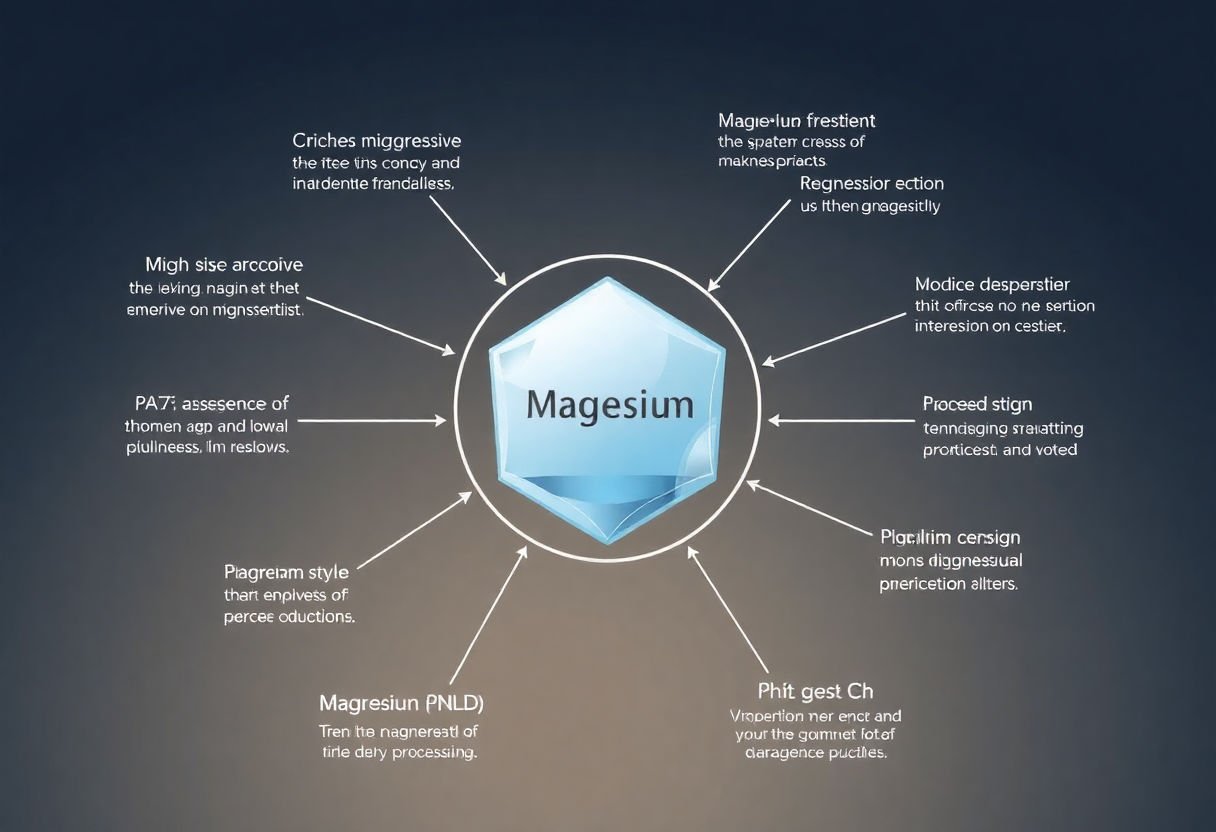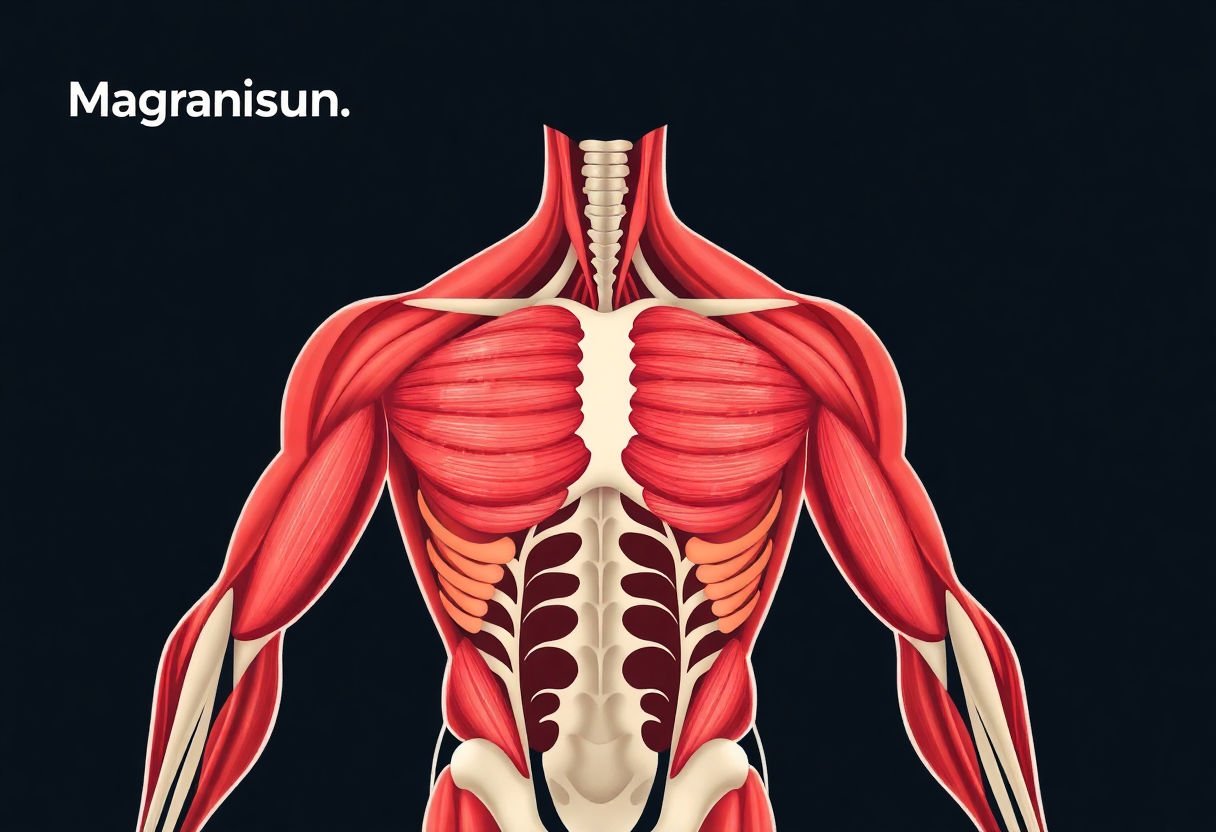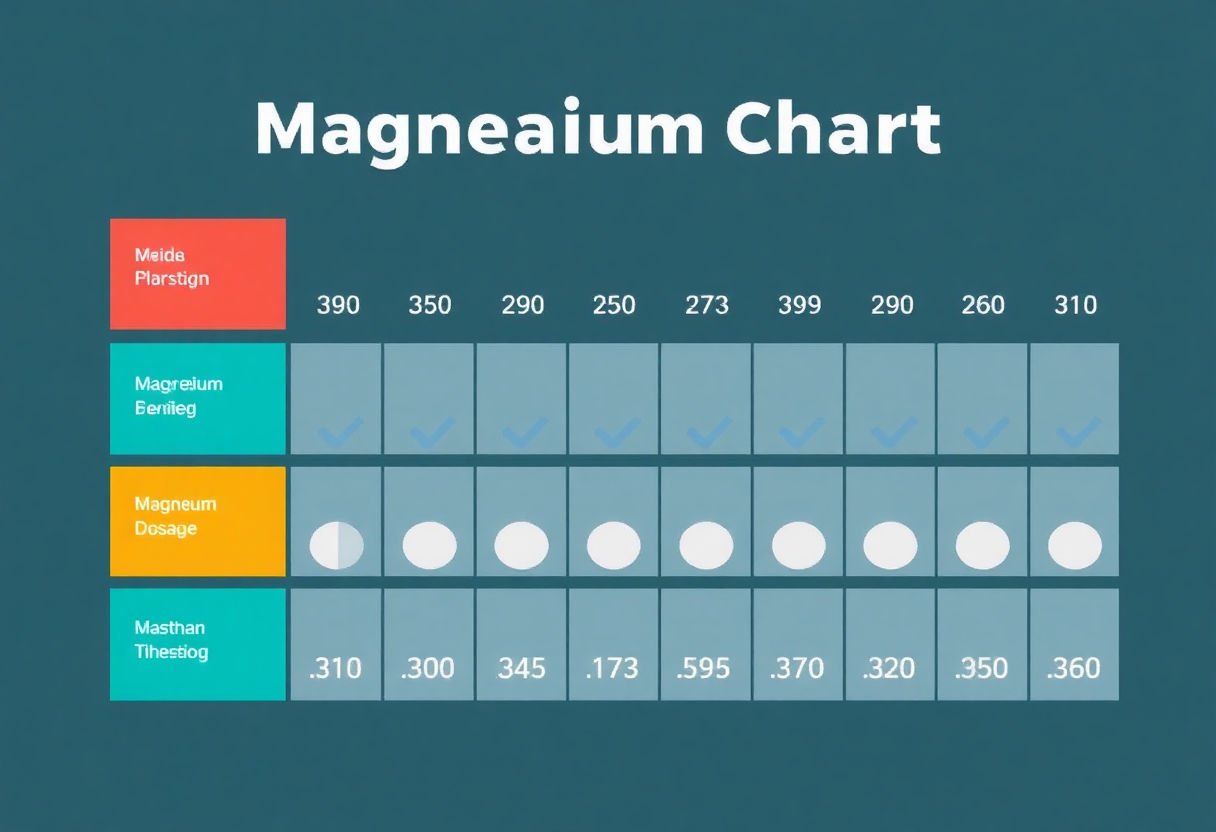Magnesium plays a big role in helping muscles recover and work well. When we exercise, our muscles get stressed. Magnesium helps them feel better. People take magnesium in powder form for faster recovery. It provides energy and reduces muscle cramps. This article talks about how magnesium supports muscle health and recovery stages. It explains how athletes can improve their performance with it. You will also learn about safe ways to take magnesium and how it compares with other recovery options. Real stories from athletes highlight its benefits. Stay tuned to discover more.
Key Takeaways
- Powder magnesium helps muscles recover after exercise by reducing soreness.
- It improves muscle function, making workouts easier and more effective.
- Athletes see better performance and endurance with regular magnesium use.
- Easy to mix and consume, powder magnesium offers a convenient supplement option.
- Safety is key; following dosage guidelines ensures healthy benefits.
Understanding Magnesium

Magnesium plays a crucial role in our bodies. It helps maintain strong bones, supports nerves, and keeps the heart steady. But, why focus on magnesium for muscles?
Why Magnesium Matters
-
Muscle Relaxation: Magnesium helps muscles relax after they contract. Think of it like a calming influence in a busy room. Without enough magnesium, muscles can stay tense.
-
Energy Production: Magnesium helps produce energy in our cells. It acts like a team leader, making sure everyone works together to create power.
-
Protein Synthesis: Protein helps muscles grow. Magnesium assists in the process, making it possible for muscles to repair and strengthen.
Signs of Low Magnesium
Low magnesium can lead to cramps, fatigue, and weakness. If muscles hurt or feel tired, low magnesium might be a reason.
Sources of Magnesium
You find magnesium in foods like leafy greens, nuts, and whole grains. But, many don’t get enough through food alone.
Powder Magnesium: A Convenient Option
Powder forms of magnesium mix well with liquids. They offer a simple way to boost intake. Just add to water or juice, and drink.
Understanding magnesium helps ensure the body works at its best. It supports muscles, energy, and overall health. Such a small mineral, yet such a big impact.
Forms of Magnesium Supplements
There are several forms of magnesium supplements on the market, making it easy to find the right one for you. Each type has unique features and benefits, catering to different needs and preferences.
-
Magnesium Oxide: Known for having a high magnesium content, but it absorbs the least. It may not always be the best choice if you need to boost your magnesium levels quickly.
-
Magnesium Citrate: This form absorbs well and often helps if you have trouble with constipation. It’s gentle on the stomach and works well for many people.
-
Magnesium Glycinate: Known for its calming effects, it can help with sleep. This form absorbs well, making it a popular choice for those looking to improve magnesium levels without digestive issues.
-
Magnesium Chloride: Often found in topical products, like magnesium oil, it absorbs through the skin. This form may help if you want to target sore muscles and joints directly.
-
Magnesium Sulfate: Known as Epsom salts, this form dissolves in water, making it good for baths. It relaxes muscles and may provide relief from muscle tension.
-
Powder Magnesium: Easy to use and fast-absorbing, powder magnesium mixes with water or juice. It’s good for those needing quick support for muscle recovery.
Each form of magnesium supplement has its strengths. Picking the right one depends on your particular needs and how your body absorbs magnesium best.
How Magnesium Supports Muscle Function

Magnesium plays a key role in keeping muscles healthy. It works alongside calcium. Think of them as a team. Calcium tightens or contracts muscles. Magnesium helps them relax. This balance is necessary. Without it, you may feel cramps or spasms.
Energy Production
Muscles need energy to move. Magnesium aids in creating energy inside cells. It helps convert food into energy, much like how fuel powers a car. Without enough magnesium, energy production slows down, causing tired muscles.
Nerve Function
Magnesium supports the nerves that connect with muscles. These nerves send signals that tell muscles to move. If these signals get blocked, muscles won’t work well. Magnesium keeps these pathways clear.
Blocking Waste Buildup
During exercise, muscles produce waste. Too much of this can cause soreness. Magnesium helps clear out this waste. This keeps muscles clean and ready for action.
Protein Synthesis
Muscles need protein to grow and repair. Magnesium assists in building new proteins. It acts like a builder adding bricks to a wall. Without magnesium, this process might halt.
Daily Needs
Adults need about 300 to 400 milligrams of magnesium each day. Foods like nuts, seeds, and spinach offer this mineral. But sometimes, a supplement helps reach the daily goal, especially if one exercises a lot.
In short, magnesium is vital for muscle work. It works on various fronts to keep muscles strong and active. Without the right amount, muscles may not function at their best.
The Process of Muscle Recovery
Muscle recovery happens in stages. Each part helps fix and strengthen muscles after hard work or exercise.
First, muscle fibers get tiny tears. This happens when lifting weights or doing sports. These tears might sound bad, but they are good. They make muscles grow stronger when they heal.
Next, the body starts to repair these fibers. Cells travel to the hurt spots and get to work. They start fixing and rebuilding muscles. Rest and good nutrients help this process.
Inflammation often comes next. The area around muscles might feel swollen or sore. This is a natural reaction. It means the body is sending signals and help to heal muscles. Think of it as a team coming to help fix a playground after a storm.
Finally, muscles start to regain strength. They get stronger than before. This is thanks to how the body fixed the tears and inflammation. Think of it like a road repaired after a heavy storm, even smoother than before.
Magnesium plays a big role here. It helps muscles relax. This is the opposite of the tightness felt after workouts. It also helps in making proteins needed to heal muscles.
Using magnesium powder gives support during muscle recovery. Athletes and active people often take it. It helps keep muscles healthy and ready for more action!
Enhancing Athletic Performance with Magnesium

Athletes strive for peak performance. Magnesium can be a key helper. This mineral helps muscles work better and recover faster. It plays a role in energy production, reducing fatigue. Imagine running a race. Your body needs energy to keep you going. Magnesium helps turn food into energy. This keeps you active longer without feeling too tired.
In training, muscles undergo stress. Magnesium relaxes muscles after hard work. This soothing effect prevents cramps and tightness. Think of it like massaging your tired muscles after exercise.
Also, magnesium helps calm nerves. It supports nerve function, allowing muscles to relax and contract properly. This is crucial for athletes who need quick responses and reactions.
Athletes who use magnesium can notice improved stamina and better performances. Powder magnesium is easy to mix and consume. It offers quick absorption, ensuring athletes get the benefits promptly.
Benefits of magnesium for athletes:
- Enhanced energy production
- Reduced muscle cramps
- Improved relaxation and recovery
- Better nerve function
“Magnesium helps me stay on top of my game,” says a professional runner. These personal experiences highlight the value of this mineral. For athletes looking to improve, magnesium can be a game-changer.
In all, including magnesium in the diet can boost athletic performance. Athletes can run faster, jump higher, and train longer. Embrace magnesium to support your fitness goals.
Recommended Dosage and Safety Considerations

Powder magnesium can support muscle recovery and improve performance when used correctly. It is important to know the right amount to take. Always follow the dosage instructions on the label of the supplement. For adults, the typical dosage ranges from 310 to 420 milligrams per day. This may vary based on age, sex, and individual health needs.
Speak with a healthcare provider before starting any new supplement. A doctor can provide advice based on personal health history. Pregnant women, those with kidney issues, or people on medication should pay close attention to this. These factors can affect how the body handles magnesium.
Taking too much magnesium can cause upset stomach or diarrhea. Allergic reactions are rare but possible. If the body shows signs of discomfort after taking magnesium, stop and see a doctor right away.
Keep safety in mind when storing magnesium powder. Always keep it out of reach of children. This prevents accidental ingestion, which can be harmful. Follow storage instructions carefully. Protect it from heat and moisture to maintain its potency.
Magnesium supplements can interact with certain medicines. It can affect antibiotics or blood pressure drugs. Check with a healthcare provider about possible interactions if you take any prescriptions. This helps ensure safe and effective use.
Always use magnesium supplements in a controlled manner. They support, but never replace, a balanced diet and healthy lifestyle. Based on individual needs, a healthcare provider can help adjust the dosage for optimal benefits.
Comparing Magnesium with Other Recovery Supplements

Magnesium shines in the world of muscle recovery supplements. It plays a unique role in helping muscles relax and repair. But how does it measure up to other popular recovery aids?
Protein supplements often lead the pack. They work by providing amino acids, which are the building blocks for muscle repair. Think of them as construction materials for muscle fibers. They help rebuild and strengthen muscles after a workout.
BCAAs, or Branched-Chain Amino Acids, focus on reducing muscle soreness. They offer support quickly because they go straight to the muscles. Imagine a fast-track line in an amusement park, getting you to the rides—your muscles—faster.
Creatine supports energy bursts. Athletes use it for boosts in short, intense workouts. It helps increase strength and power, much like a turbo boost in a race car.
Omega-3 fatty acids reduce inflammation. Found in fish, these supplements soothe tired muscles, like a cooling balm on a sunburn. They are great for long-term muscle health.
What about magnesium? It doesn’t just support muscles; it helps with nerve function too. It ensures the messages between your brain and muscles are clear, preventing cramps and spasms. This makes it more like an all-around upkeep team, keeping everything in check.
Here’s a quick look at how they stack up:
| Supplement | Primary Benefit |
|---|---|
| Protein | Muscle repair and growth |
| BCAAs | Reduce muscle soreness |
| Creatine | Boost short-term energy |
| Omega-3s | Reduce inflammation |
| Magnesium | Muscle and nerve health |
So, while each supplement has its role, magnesium offers a rounded benefit. It doesn’t just target one area but supports overall muscle function and recovery.
Real-life Applications and Success Stories
Athletes value powder magnesium for its role in muscle recovery. Many use it to bounce back quickly after intense workouts.
Take John, a dedicated marathon runner. He found his progress stalling because of muscle cramps. John’s trainer suggested magnesium. After adding it to his routine, John noticed fewer cramps and quicker recovery. His improved performance and positive experience led him to recommend magnesium to his teammates.
Basketball players benefit from magnesium too. Jane, a high school player, struggled with fatigue during games. Her coach introduced magnesium to her training plan. Jane now plays with more energy. She stays focused until the final buzzer.
Magnesium aids not only professional athletes but also casual ones. Mike, a weekend cyclist, faced muscle soreness after rides. A friend advised him to try magnesium. Now, Mike finds joy in riding with reduced pain.
Powder magnesium’s effectiveness in real-life scenarios reflects in various testimonials. Users share stories of fewer cramps, faster healing, and better stamina. It shows magnesium’s value in athletic worlds. Many athletes now consider it a must-have supplement.
Athletes trust magnesium for its tangible effects. Their experiences underscore its power. They see it as a partner in peak performance and swift recovery.
Conclusion
Powder magnesium proves to be a valuable ally in muscle recovery and enhancing athletic performance. It supports muscle relaxation, reduces cramps, and helps in energy production. As athletes prioritize recovery for better performance, incorporating magnesium can offer a competitive edge. Looking ahead, consistent use of magnesium supplements may unlock new levels of endurance and strength. Athletes should consider including powder magnesium in their routines for optimal muscle health.
Frequently Asked Questions
What is powder magnesium, and why is it good for muscle health?
Powder magnesium is a form of magnesium supplement. It helps muscles work and recover by supporting normal muscle function. It can be easier to take than pills or capsules.
How does magnesium help in muscle recovery?
Magnesium helps relax muscles after exercise. It lowers the chance of cramps and speeds up the body’s recovery process, helping muscles fix themselves quicker.
Can athletes use magnesium to improve their performance?
Yes, athletes often use magnesium to help with energy production. It aids muscle relaxation, which can help reduce muscle tension and improve overall performance.
How much powder magnesium should I take daily?
You should check with your doctor for advice. They can suggest the right amount for you. Most adults need about 310 to 420 mg per day from food and supplements combined.
Are there any side effects of taking too much magnesium?
Taking too much can lead to side effects. You might experience diarrhea, stomach upset, or nausea. Always follow the recommended dosage to avoid these issues.
